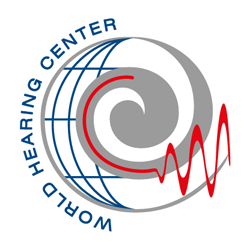Current Issue
Volumes and Issues
For Authors
Manuscript Guidelines
Review Process
Conflict of Interest
Copyright
About the Journal
Editorial Board
Aim and Scope
Policy and Ethical Guidelines
Promotion of the Journal
Print-Version Subscription
Publisher and Contact Information
Contact Information
Sign in as an AUTHOR/REVIEWER
“INFLAMMAGING” AND ITS MANAGEMENT IN PRESBYCUSIS
1
Institute of Sound and Vibration Research, Faculty of Engineering and the Environment, University of
Southampton, U.K.
Publication date: 2012-12-31
Corresponding author
Carl Verschuur
Carl Verschuur, Institute of Sound and Vibration Research, Faculty of Engineering and the Environment, University of Southampton, U.K., e-mail: cav@isvr.soton.ac.uk
Carl Verschuur, Institute of Sound and Vibration Research, Faculty of Engineering and the Environment, University of Southampton, U.K., e-mail: cav@isvr.soton.ac.uk
J Hear Sci 2012;2(4):46-48
ABSTRACT
Background:
From human studies there is little published evidence on the biological basis for presbycusis. We report a previously published study which tested the hypothesis that chronic inflammation in the elderly, known as “inflammaging” is a causal factor for presbycusis.
Material and Methods:
Analysis of biological and audiological data from a large population cohort showed an independent association between a range of inflammatory markers and mean hearing level.
Discussion:
Our findings suggest that further investigation into the role of inflammation in causing presbycusis is warranted. We also discuss wider research plans, and argue for a greater understanding of the inter-relationship of systemic and cochlear inflammation and the role of inflammatory processes in causing a range of types of hearing loss.
From human studies there is little published evidence on the biological basis for presbycusis. We report a previously published study which tested the hypothesis that chronic inflammation in the elderly, known as “inflammaging” is a causal factor for presbycusis.
Material and Methods:
Analysis of biological and audiological data from a large population cohort showed an independent association between a range of inflammatory markers and mean hearing level.
Discussion:
Our findings suggest that further investigation into the role of inflammation in causing presbycusis is warranted. We also discuss wider research plans, and argue for a greater understanding of the inter-relationship of systemic and cochlear inflammation and the role of inflammatory processes in causing a range of types of hearing loss.
REFERENCES (16)
1.
Larbi A, Franceschi C, Mazzatti D et al: Aging of the immune system as a prognostic factor for human longevity. Physiology (Bethesda, Md.), 2008; 23: 64–74.
2.
Hunt KJ, Walsh BM, Voegeli D, Roberts HC: Inflammation in aging part 1: physiology and immunological mechanisms. Biol Res Nurs, 2010; 11(3): 245–52.
3.
Harris JP, Ryan F: Immunobiology of the inner ear. Am J Otolaryngol, 1984; 5(6): 418–25.
4.
Satoh H, Firestein GS, Billings PB et al: Proinflammatory Cytokine Expression in the Endolymphatic Sac During Inner Ear Inflammation. J Assoc Res Otolaryngol, 2003; 4(2): 139–47.
5.
Gates GA, Cobb JL, D’Agostino RB, Wolf PA: The relation of hearing in the elderly to the presence of cardiovascular disease and cardiovascular risk factors. Arch Otolaryngol Head Neck Surg, 1993; 119(2): 156–61.
6.
Lin FR, Metter EJ, O’Brien RJ et al: Hearing loss and incident dementia. Arch Neurol, 2011; 68(2): 214–20.
7.
Frisina ST, Mapes F, Kim S et al: Characterization of hearing loss in aged type II diabetics. Hear Res, 2006; 211(1–2): 103–13.
8.
8, Verschuur CA, Dowell A, Syddall HE et al: Markers of inflammatory status are associated with hearing threshold in older people: findings from the Hertfordshire Ageing Study. Age Ageing, 2012; 41(1): 92–97.
9.
Holmes C, Cunningham C, Zotova E et al: Systemic inflammation and disease progression in Alzheimer disease. Neurology, 2009; 73(10): 768–74.
10.
a Ashfield T, Syddall HE, Martin HJ et al: Grip strength andcardiovascular drug use in older people: findings from the Hertfordshire Cohort Study. Age Ageing, 2010; 39(2): 185–91.
11.
Robinson S, Syddall H, Jameson K et al: Current patterns of diet in community-dwelling older men and women: results from the Hertfordshire Cohort Study. Age Ageing, 2009; 38(5): 594–99.
12.
Ohlemiller KK: Mechanisms and genes in human strial presbycusis from animal models. Brain Res, 2009; 1277(314): 70–83.
13.
Haake SM, Dinh CT, Chen S et al: Dexamethasone protects auditory hair cells against TNFalpha-initiated apoptosis via activation of PI3K/Akt and NFkappaB signaling. Hear Res, 2009; 255(1–2): 22–32.
14.
Chang A, Eastwood H, Sly D et al: Factors influencing the efficacy of round window dexamethasone protection of residual hearing post-cochlear implant surgery. Hear Res, 2009; 255(1–2): 67–72.
15.
James DP, Eastwood H, Richardson RT, O’Leary SJ: Effects of round window dexamethasone on residual hearing in a Guinea pig model of cochlear implantation. Audiol Neurootol, 2008; 13(2): 86–96.
16.
Dinh CT, Van De Water TR: Blocking pro-cell-death signal pathways to conserve hearing. Audiol Neurootol, 2009; 14(6) 383–92.
We process personal data collected when visiting the website. The function of obtaining information about users and their behavior is carried out by voluntarily entered information in forms and saving cookies in end devices. Data, including cookies, are used to provide services, improve the user experience and to analyze the traffic in accordance with the Privacy policy. Data are also collected and processed by Google Analytics tool (more).
You can change cookies settings in your browser. Restricted use of cookies in the browser configuration may affect some functionalities of the website.
You can change cookies settings in your browser. Restricted use of cookies in the browser configuration may affect some functionalities of the website.



